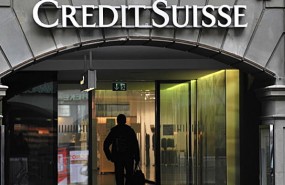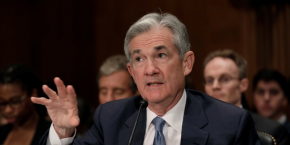
The Ibex 35 closes the first week of October losing the key support it had in the 9,300 points. This Friday it has fallen 0.65%, to 9,253.9 points, which represents a loss in the accumulated of the week of 1.4%. These last few days have been marked by Italy, by its rudeness to the European Union (EU) and then by its decision to back down (albeit half and in a blunt way).
- 11.473,900
- 0,33%
In the rest of Europe, the falls have also been widespread. In the case of the London Ftse 100 index, the declines were even higher than 1%. In fact, the parks of the Old Continent have already opened the session red, due to the sharp falls that Wall Street suffered yesterday (close to 2% in the case of the Nasdaq index).
The decreases to the other side of the Atlantic are maintained this Friday, although in a more moderate way. The session counted with a key fact: the employment report for the month of September in the United States. The unemployment rate in the North American country has fallen to 3.7% last month, that is, the lowest figure since April 1969.
US BOND MARKET
Also, one of the hot topics now in the market is the rally of the yield of the American bond. Experts explain the fall of this Thursday on Wall Street (2% on the Nasdaq) blaming the rise in the yield of the bonds. "The increase in bond yields is curbing the appetite for equities," says Jasper Lawler, an analyst at London Capital Group.
"This is not the first time we have seen an increase in yields (of bonds) this year and a fall in equities, but the increases are stronger this time, since the accumulation of solid data has been Longer and even more impressive data, even the Federal Reserve is feeding the highest returns with their comments, "Lawler adds.
On the other hand, the experts of Link Securities explain that the fact that the yields of the American bonds rise, in a scenario of strong growth and a rebound in inflation (...) should not surprise anyone. "The problem is that the rebound in yields on US Treasury bonds was accompanied by a strong appreciation of the US currency against the main world currencies, a factor that again threatens to have a very negative impact on the emerging economies that maintain high indebtedness in dollars ", they indicate.
ARCELORMITTAL LEADS FALLS
Back to the Spanish stock exchange, the companies that fell the most on Friday at the Ibex were Arcelormittal (-4%), Siemens Gamesa (-3.46%) and Cie Automotive (-3.4%). Meanwhile, the most bullish were Aena (+ 1.6%), Acciona (+ 1.4%) and Viscofan (+ 1.2%).
The supermarket chain DIA (+ 0.25%) was also one of the few companies that ended the session in green this Friday, after the British fund Baillie Gifford reduced its stake in the company's capital again. 5.625%.
Finally, in the Continuous Market, it is worth mentioning the strong falls of Parques Reunidos (-2.9%) after the resignation yesterday of its CEO and the new historical minimum of Abengoa A at 0.0126 euros.
TECHNICAL ANALYSIS
José María Rodríguez, technical analyst of Bolsamanía, points out that the Ibex dropped 4.5% from the highs of the end of September, after the last great expiration of options and futures (quadruple witch hour). "It was only six points away from the famous resistance of 9,671 points and therefore he built us, albeit for the minimum, a new decreasing maximum", he explains.
"The sixth consecutive maximum decrease since the May highs, that said, we already have the annual minimums at 9,111 points, and below that, the 8,800 points, this is just the potential straight support that joins the growing lows of 2012 and 2016. I do not want to say what thong to fall in. In fact, everything is possible in the markets, "says the expert.
"What I'm saying is that below the annual minimums there is nothing important until that area," says Rodríguez. "In fact, in weekly candles what we have are seven consecutive decreasing maximums in the year, so to be able to say that something is changing we need to build a first growing maximum, or what is the same, jump over the 9,671 points. Meanwhile, nothing at all: simple rebounds (sometimes violent) within a corrective phase of a higher order ", concludes the technical analyst.
Noticias relacionadas

Las cinco anomalías a las que se enfrentan ahora los mercados

El Nasdaq pierde casi un 2% mientras la volatilidad se dispara en Wall Street

Cara y cruz del repunte de los bonos de EEUU: ¿cómo afectará a la bolsa?

La exposición real en Italia de la banca española suma casi 100.000 millones


